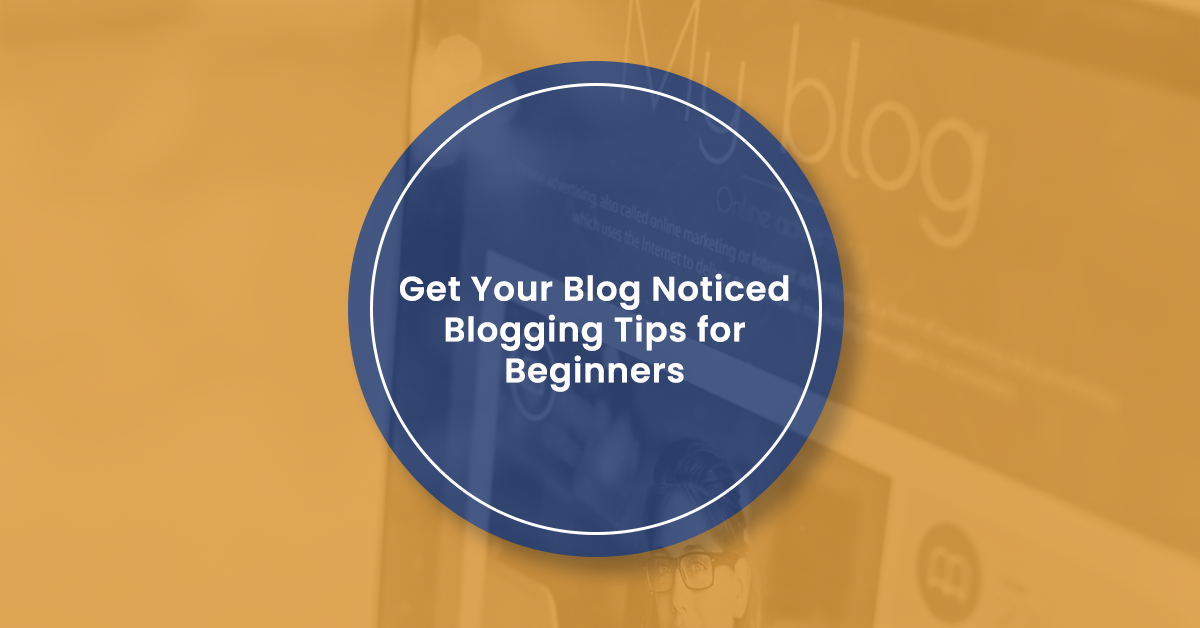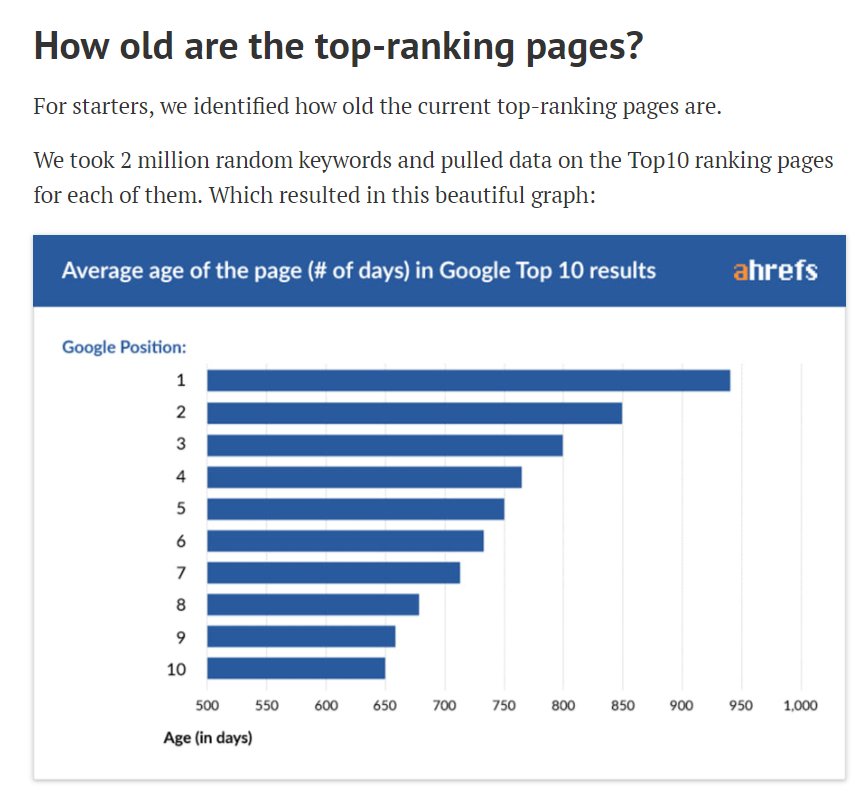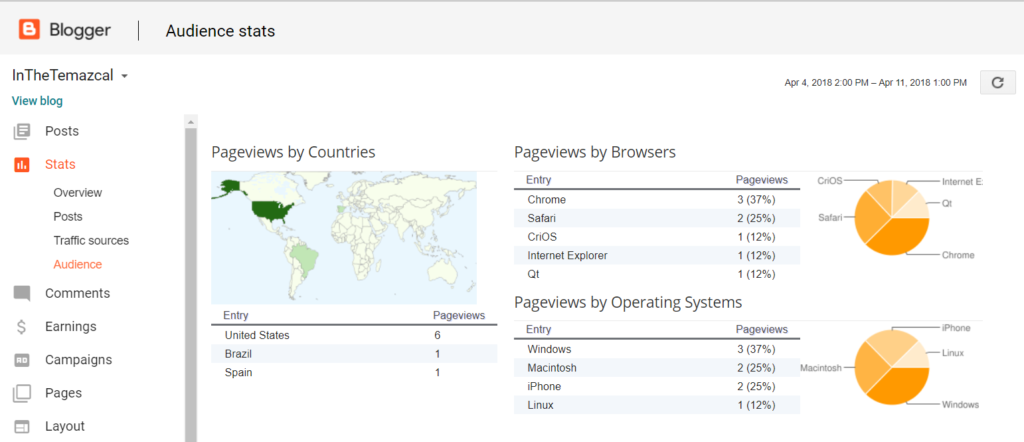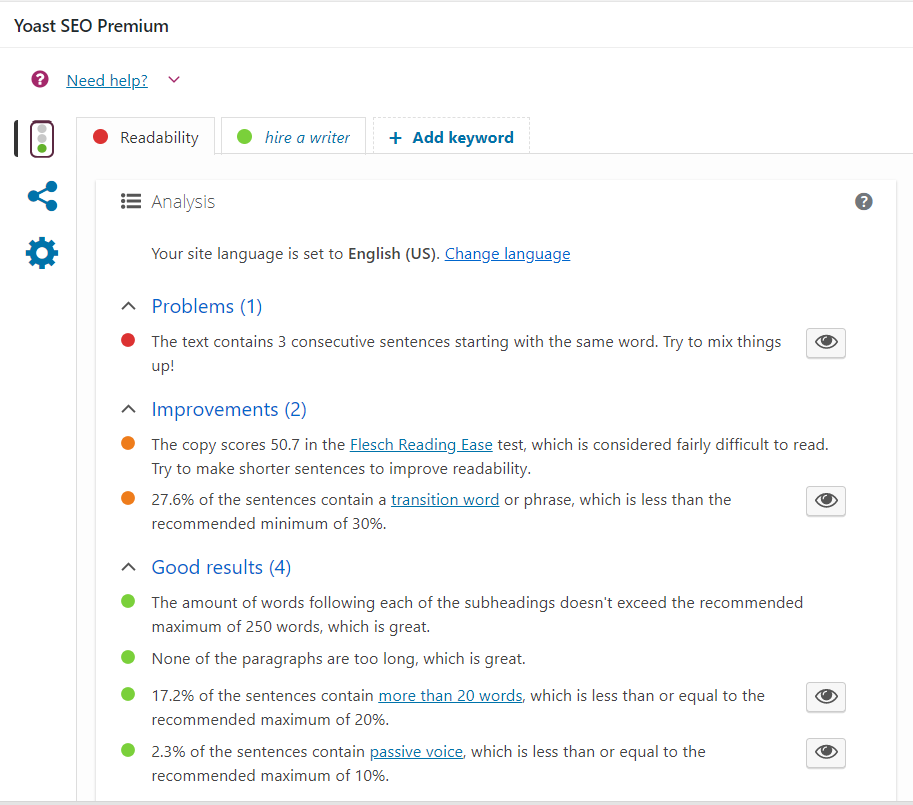
If you’re just starting to think about a blog for your business, you could probably use some blogging tips for beginners. To get your blog noticed, you need to concentrate on the most time-consuming element of a blog: copywriting.
Adding a blog to your business website can help you build your brand and improve your online presence as an authority in your niche, says Startup Digest. It can also help your business build a community, whether it’s a support community for you, as a professional, or for engaging with customers.
Of course, your business blog will contribute to your brand’s overall search engine optimization (SEO), drawing in more organic traffic. A good blog also helps get you noticed by helping your business’ public relations. As you keep these benefits in mind, start using these blogging tips for beginners, and soon you’ll be looking back on a blog that makes you feel proud.
Blogging Tips for Beginners – Tip #1: Get Started
Without a doubt, the biggest barrier to developing a blog is simply getting started. From the outside it seems complicated, technically difficult, laborious, expensive, intimidating, and extremely time-consuming.
From the inside, it looks the same. So, stop waiting for the perfect moment, because it always looks like one more thing needs to happen before it’s the right moment.
Instead of putting effort into thinking and learning about it, get started, if you want your blog to get noticed. It’s the best way to learn, and it also earns you time online as seen by search engines. Search engines favor sites that have been around awhile.
Your blog’s an investment. As with any investment, the earlier you start, the greater its potential for appreciation. Although Matt Cutts, of Google, reports that domain age plays a very small role in page rank, indirectly, it does affect positioning because it takes time for the page to develop a history of traffic and backlinks. As pages age, says Tim Soulo, on Ahrefs, the average page rank on search engine results pages (SERP) increases.

Blogging Tips for Beginners – Tip #2: Start writing
Start writing down ideas and turning them into content for your blog immediately. Even if you have not decided on a domain name or begun a blog site, you can start writing copy for posts.
That’s important because you will almost always find that the biggest blogging bottleneck is getting copy ready to post on your editorial calendar. When you first start setting up your blog, designing your logo, trying to find your focus, looking for images to put on your website, learning how to use a content management program, and just learning the ropes in general, you will thank yourself for having put time in on the editorial keyboard.
If you get started developing content early on, you can start posting soon and start building your brand and your history. It takes a while to build a brand. Of course, the amount of time varies with many circumstances, but marketer, David Brond, on ABCreative, presents a pretty good argument that five years is about standard for a brand to start working. Getting written content out is one way to get your blog noticed sooner.
Blogging Tips for Beginners – Tip #3: Start with Free and Inexpensive Resources
As you look for information about how to start your blog, you will see post after post describing expensive apps, high-cost themes, automation tools, social media management platforms, and all kinds of bells and whistles. As a beginner, most will burn down your savings more than help you blog. You’ll just have too much to do, at first, to focus on any of them. Everything you absolutely need you can find for free or next to nothing, if you take the time to look around.
Once you find yourself posting regularly, sticking to your editorial calendar, and seeing your blog get responses, then you might think about investing in things like automation services, SEO, plugins, and apps. Start on the least expensive platform; you will even find some that are absolutely free. WordPress, Blogger, and Tumblr are just a few.
If you want to move up to a more expensive platform and software later, it’s not that big of a deal to migrate your website. If you’re not a tech wizard, you can hire someone to help you do it later. By that time, you will know if it’s a good investment or not, and you will have a much better idea of what you want.
Craftedium reviewed what it considers the best free blogging platforms. You’ll find that the actual free part of most of the platforms is pretty limiting. However, most will allow you to start getting your content online, build some authority, and have a place to land your leads, if you try one out.
Blogger, by Google, for example, offers enough features to get you started if a blogging- and landing-place is what you need. It even offers modest analytics, and some of its newer templates make for an attractive site to help your blog get noticed.

Blogging Tips for Beginners – Tip #4: Use an Editorial Calendar
Whatever platform you decide upon, make sure that one of the first things you add to it is an editorial calendar. You will find that some of the free resources, like Google’s Blogger, do not offer much in the way of plugins to help you create an editorial calendar. In those cases, at least schedule them on your calendar so that you stay on track.
Without an editorial calendar, ideas and copy just seem to pile up and never get posted. The editorial calendar will keep you focused on the most urgent, or proximal, posts.
Blogging Tips for Beginners – Tip #5: Set Goals for Your Blog
Why do you want a blog for your business? Do you want it to generate interest in your product? Do you want it to educate potential customers? Do you want it to engage existing customers? Do you want it to address customer issues?
Whatever reason you have for adding a blog to your business, make sure that the copy you publish is tied to your business’ goals. The author of The Content Mastery Guide for Wellness Professionals, Linda Dessau, on Social Media Examiner, suggested, “Approach your blog as a way to support your mission statement.”
If you set your goals early on, you will find it much easier to focus and decide on which content needs to go out first. Many entrepreneurs are not really sure what they want to do or where they want their blog to take them. They just somehow feel they need to blog to get their product or service moving. If that’s your case, well go ahead, but don’t wait too long to start getting your goals and objectives in written form so that they start focusing your blog.
Blogging Tips for Beginners – Tip #6: Narrow Your Focus
Unless you own Walmart or Amazon, you’ll want to narrow your focus on your blog as soon as you can. Generalists just can’t beat the giant competitors anymore.
A specialist, however, can find a niche and become number one within it. Beginners tend to want to avoid excluding anyone as a potential customer. As a result they often make the mistake of trying to target an audience that has too much competition.
Blogging and social media strategist, Rachel Moffett, on Define your Hustle, discussed the importance of narrowing your blog’s focus:
“… You need to be crystal clear on who your ideal reader is. Because your blog content is going to be so much more powerful when you focus on that one type of person you want to read your site. That person will feel like you’re reading her mind. And everything you do is going to resonate with her.”
If you’re running a one-person coffee shop, you don’t want to start out trying to compete against Starbucks. You need to find some niche that the big coffee retailers have not yet filled.
An important blog writing tip is that the more you narrow your focus the easier it will be to generate content related to it. If you have a narrow focus in a narrow market, you may be the world’s greatest expert.
Blogging Tips for Beginners – Tip #7: Write Well
Remember that high school grammar and style manual that you wanted to burn when you graduated? Well now it’s time to thank your mom for not letting you do it. Go down in the basement, and dig it out. It’s time to start writing well again.
Actually, if you take a look at the writing on internet, there is a lot of really poorly written material out there. Many very successful people did not start out as great writers.
In fact, one of the world’s greatest SEO and marketing experts, Neil Patel, wrote,
“I used to suck at writing, big time! So I understand the struggle. However, I had a lot of help to improve my writing and blogging skills and I want to pay it forward to help those who had the same struggles I did!”
You can improve your writing. Blogging will make you do it.
Good writing has become a critical ranking factor for search engines, and the SEO expert, Yoast, knows it. They have incorporated a readability scale right into their SEO plug-in. Why? Because search engine algorithms look for good writing.

These seven blogging tips for beginners and writing tips for beginning bloggers, won’t solve all of your blocking needs, but they’ll start getting you noticed online. If keep these tips in mind, as you start putting together your blog, they will help you meet other goals that you will come up with as you move forward. In addition you’ll find that one of the benefits of your growing blog will be a growing network, and you will pick up tip after tip from that growing network. Happy blogging!

